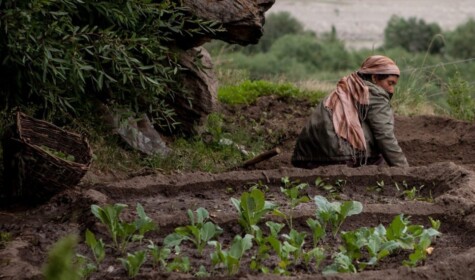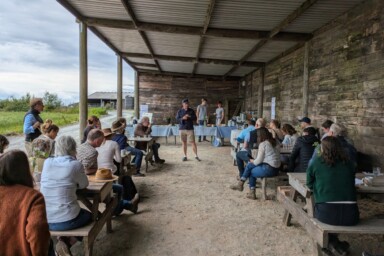What is health? Is it merely the absence of disease? And, in the case of COVID-19, can we expect a return to relative normality when enough of us have been infected, hopefully gotten through it or been vaccinated against it? Or is there a more fundamental underlying issue at stake? It’s a question I’ve been mulling over during the last few weeks and, in connection with this, I’ve been inspired by the ideas of the British scientist, Sir Albert Howard, an expert in plant diseases. Howard was posted out to North West India in 1905 at the height of the British Empire, to promote the adoption of what would now be seen as more intensive farming methods to the peasant farmers of the Hunza region.
Remarkably, on arriving, he had the humility to realise he was witnessing the impact of a circular farming system, based on crop rotations and the return of composted waste to the soil, as a result of which the plants, animals and the Hunza people themselves exhibited exceptional health – despite the existence of multiple weeds, pests, and diseases, which although present, did not appear to get the upper hand. He put this down to the fertility of the soil and referred to the peasant farmers as his teachers, learning from their practices and applying their farming principles at research centres that he subsequently established during his 35 years in India.
Howard’s conclusion was that health is, or should be, ‘the birth right of every living organism’. This principle of positive health can be observed everywhere, in individual organisms and in ecosystems. It could be described as some kind of dynamic state of balance between an organism and its external environment, which is hard to describe, but you know it when you see it. It is a state of balance and harmony, and something that as a farmer I am constantly striving to achieve as an outcome for the plants and animals under my care.
Howard suggested that these pests, diseases and parasites will always be with us, referring to them as ‘Nature’s professors of good husbandry’, revealing to us our management deficiencies. They are the great leveler, weeding out the sick from the strong. So, it follows that if an organism is really healthy, it will be able to withstand disease challenges and not become sick or die.
This approach turned on its head the attitude that modern scientists have adopted towards treating disease, which was propelled by the discovery of numerous new means of suppressing it, most notably the development of penicillin by Alexander Fleming and Howard Florey, which led to it becoming widely available from the mid 1940s onwards for use in animal and human medicine.
Applying this mindset to COVID-19, we might think that since we have managed to crack most modern diseases to date, the accidental emergence of a new virus is simply a medical challenge, requiring rapid development of a vaccine after which it will all be back to normal again. But is this really how we should see the pandemic? I think more and more of us think not, and we are beginning to question whether there is some fundamental way in which the propensity of natural ecosystems to self-regulate has been upset as a result of population expansion, industrialisation and the consequent weakening of the human immune system.
I am reminded of Jared Diamond’s book ‘Collapse’, which chronicled the sudden disappearance of whole populations throughout history, giving examples including Easter Island, Greenland, and the Mayan civilisation. At the end of the book, rather ominously, he suggested that the next collapse could be global because we have globalised just about all the life support systems upon which we depend since these earlier collapses.
Taking all this into account, what lessons can we derive from the COVID-19 experience? Firstly, that diseases can never be eliminated, so any treatment strategy has to be predicated on the assumption that in the first instance, isolation, treatment and suppression (probably in the form of a vaccine) will all be necessary before a reasonable balance of health can be reestablished.
But that must not be the end of it. The state of vitality in human beings is connected directly to the food we eat. If we are to strengthen our immune systems against future potential pandemic threats, then our farming systems need to be built upon the principle of positive health in the plants and animals under our care, as opposed to the artificial stimulation of growth and the suppression of disease through chemistry, which characterises so much of our food production today.
Much of this was recognised and applied in India more than a century ago and recorded in Howard’s book ‘An Agricultural Testament’, published in 1940. When will we ever learn? It is interesting and ironic that our then Secretary of State Michael Gove’s consultation document was entitled ‘Health and Harmony: The future for food, farming and the environment’! Perhaps on some intuitive level Gove also understood the necessity for a fundamental change of approach to our food and farming systems based on the principle of positive health. Whether this finds expression in the Agriculture Bill, which is currently being debated, is certainly up for question.
Featured image: sandeepachetan.com.







